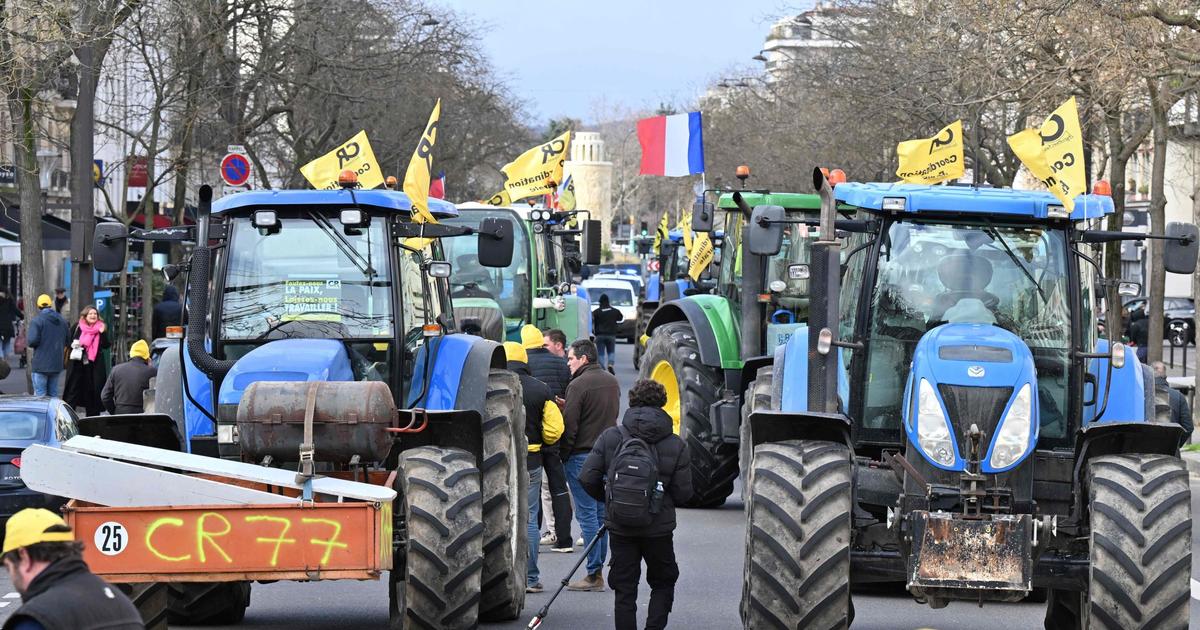Timothée Gaget is president of the Artcher agency and a specialist in questions of industrial and agricultural sovereignty.
To discover
PODCAST - Listen to the club Le Club Le Figaro Idées with Eugénie Bastié
Passage through the aisles of the Salon constitutes knighthood or rejection.
Politicians rub shoulders with it, a little scoop here, a slice of pork there.
The whole exercise consists of showing, in front of the cameras, a real connection to the field.
Because if there are only 400,000 agricultural operations left, France retains its peasant imagination.
For politics, being connected to the latter would therefore mean being connected to France.
The Agricultural Show is the only place where local elected officials with peasant origins leave with an advantage over the Parisian elites.
In February 2016, the slogan “
I am a breeder, I die”
made an impression and François Hollande was greeted with his back turned and to boos.
In 2017, millions of poultry were slaughtered during the second episode of avian flu.
The presidential candidates parade.
Tense atmosphere.
Emmanuel Macron receives an egg on the shell.
The 2024 edition should be friendly and linked to the release of the Agricultural Orientation Law which has been in preparation for a year.
The peasant revolt and the blocking of the roads decided otherwise.
Especially behind the scenes, agricultural unions are measuring each other as the Chambers of Agriculture elections approach.
Also read: “It’s unbearable, we can no longer make a living from our job”: exasperated, farmers are deploying their movement throughout France
The cornered president will therefore try, facing the “green vests”, what he did with the Yellow Vests: a “great debate”.
We know he excels in the exercise, if it takes place at all (The earth uprisings having initially been invited, the FNSEA wants to boycott it).
Because if there is a profession that does not appreciate being paid for with words, it is the peasants.
And if maintaining non-road diesel (NGR) at low prices is a victory, it remains insignificant in the face of the structural and strategic problems facing French agriculture.
The battle is first of all normative.
Strict application of the Egalim law is essential.
The announced plan of a few rules is welcome but it is the cleaning of the stream which hides the torrent of standards.
In terms of standards, as for the foodstuffs that are authorized or not to enter the EU, the destiny of French agriculture is largely played out in Brussels.
The French, struggling to name more than three MEPs, should also be interested in the European elections in June... since the proposal on the future CAP 2028-2034 will be known in the fall of 2025. Agriculture Commissioner Janusz Wojciechowski knows well: in Poland, his own party is calling for his resignation.
It must be said that, unable to match the low prices of Ukrainian foodstuffs which are flooding their market, Polish farmers are the first victims.
Farmers do not want to live on subsidies, they want to live from their profession.
Timothy Gaget
Still on the rule of law, it is easy to accuse Brussels, but the normative straitjacket is also French: without even talking about overtransposition, it is not only cows that emit methane.
In 1991, the Council of State already criticized “
soft law, vague law, law in a gaseous state
”.
We spend more time clearing a text than a field border.
The recipe proposed to simplify?
Commission, flash mission, transpartisan report, round table, Estates General, mission on the mission... We laugh as much as we choke: there will soon be more reports on the tables of our leaders than cows in the fields.
Politicians must decide, not direct theses.
The legislator must produce a simple and clear law, focused on the general interest.
Not a bunch of specific demands.
If the debate has focused on standards, the purchasing power of farmers is above all an economic question.
When it comes to competitiveness, it would again be wrong to blame Brussels for what Paris is responsible for.
Competition is also intra-European.
Of the 38 OECD countries, France is the country with the highest rate of compulsory contributions.
However, agriculture suffers the same economic costs of labor and production as other sectors.
How can a French market gardener compete with a Spanish market gardener if the cost of labor is much higher in France?
Likewise, why would a French food company, itself in competition with other European or international food companies, buy its pork, its milk or its beef more expensively from a French farmer when it can have it cheaper from a Spaniard or a German?
Fraternity unfortunately has little resistance to the market economy.
Since the end of the Second World War, the state has imposed a policy of low food prices.
However, as farmers cannot make a living from it, it re-injects money (directly or via the CAP) from behind so that the system does not collapse.
We have created markets disconnected from economic realities.
Farmers do not want to live on subsidies, they want to live from their profession, a necessary condition for generational renewal.
To ensure our food sovereignty while ensuring fair incomes for farmers, there are only two options: either we allow farmers to sell at a higher price.
Either we allow them to produce less expensively.
Ideally both.
For the second option, the choice is not legal, it is political.
Less easy but more impactful than
“flattering the cows’ asses”
for a weekend.

